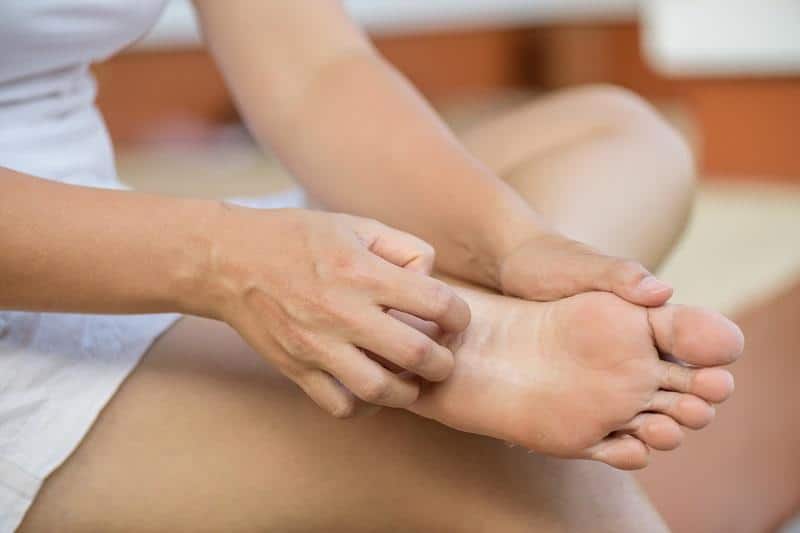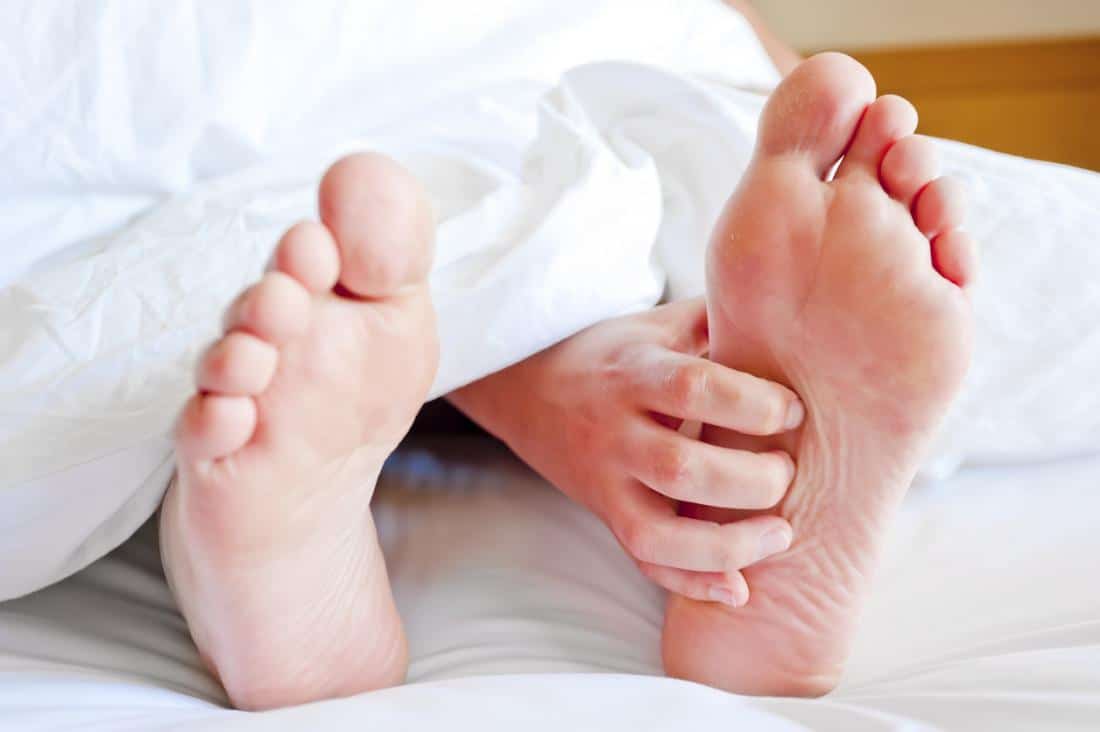Pregnancy is a beautiful and transformative journey, but it can also come with its fair share of discomforts. One common issue that many expectant mothers experience is itchy feet. While it may seem like a minor inconvenience, persistent itchiness can be quite bothersome and even disrupt daily activities. In this article, we will explore the common causes of itchy feet during pregnancy, as well as ways to manage and relieve the symptoms. We will also provide important precautions and home remedies that pregnant women can try, along with guidance on when to seek medical help. Additionally, we will share expert advice on preventing and minimizing itchy feet during pregnancy, helping expecting mothers enjoy this special time to the fullest. So, if you’re dealing with itchy feet during pregnancy, keep reading to find the answers you’ve been looking for.
- 1. Understanding the Common Causes of Itchy Feet During Pregnancy
- 2. Managing and Relieving Itchy Feet Symptoms in Pregnancy
- 3. Important Precautions and Home Remedies for Itchy Feet During Pregnancy
- 4. When to Seek Medical Help for Persistent Itchy Feet in Pregnancy
- 5. Tips for Preventing and Minimizing Itchy Feet in Pregnancy
- 6. Expert Advice on Coping with Itchy Feet during Pregnancy
1. Understanding the Common Causes of Itchy Feet During Pregnancy

During pregnancy, it is not uncommon for women to experience various physical discomforts and changes in their body. One common issue that many pregnant women face is itchy feet. The persistent itchiness can be quite bothersome and can affect their overall well-being. Understanding the common causes of itchy feet during pregnancy can help women find relief and take necessary measures to alleviate the discomfort.
1. Hormonal Changes: Pregnancy brings about significant hormonal changes in a woman’s body. These hormonal fluctuations can lead to dryness and changes in the skin, resulting in itchiness. The feet, being one of the areas that are often affected by dryness during pregnancy, can become itchy as a result.
2. Increased Blood Flow: During pregnancy, the body experiences an increase in blood volume to support the growing fetus. This increased blood flow can cause the blood vessels in the feet to dilate, leading to swelling and itchiness.
3. Edema: Edema, or fluid retention, is a common occurrence during pregnancy. It often leads to swelling in various parts of the body, including the feet. The stretched and swollen skin can become itchy and uncomfortable.
4. Allergies and Sensitivity: Pregnancy can make women more sensitive to certain substances, including allergens. Exposure to allergens such as certain fabrics, detergents, or skincare products can trigger an allergic reaction on the skin, leading to itchiness.
5. Cholestasis of Pregnancy: Cholestasis is a liver condition that can occur during pregnancy. It involves a reduced flow of bile, which can lead to the accumulation of bile acids in the body. This condition often causes intense itching, especially on the hands and feet.
It is important for pregnant women experiencing itchy feet to consult with their healthcare provider to determine the underlying cause and appropriate treatment options. In the meantime, there are some self-care measures that can help alleviate the itchiness. These include keeping the feet clean and moisturized, wearing comfortable and breathable footwear, avoiding scratching to prevent skin damage, and using mild and fragrance-free skincare products.
In conclusion, itchy feet during pregnancy can be attributed to hormonal changes, increased blood flow, edema, allergies, and cholestasis of pregnancy. Understanding the common causes can assist pregnant women in managing the discomfort and seeking appropriate medical advice. By taking proper care of their feet and following the recommended self-care measures, women can find relief from itchy feet and focus on enjoying their pregnancy journey.
2. Managing and Relieving Itchy Feet Symptoms in Pregnancy
Experiencing itchy feet during pregnancy can be a common and uncomfortable symptom for many women. While it may be frustrating, there are various strategies and remedies that can help manage and relieve this discomfort. Here are some tips to alleviate itchy feet symptoms during pregnancy:
1. Keep your feet clean and dry: Maintaining good foot hygiene is essential in managing itchy feet. Wash your feet regularly with mild soap and warm water, making sure to dry them thoroughly afterward. Moisturize your feet with a gentle, fragrance-free lotion to prevent dryness, but avoid applying lotion between your toes, as this can promote moisture buildup and increase the risk of fungal infections.
2. Wear comfortable and breathable footwear: Opt for shoes made of natural materials, such as leather or canvas, as they allow better air circulation and prevent excessive sweating. Avoid tight-fitting shoes or those with synthetic materials that can trap moisture and contribute to itching. Additionally, wearing open-toe shoes or sandals can help keep your feet cool and reduce discomfort.
3. Use cool compresses: Applying cool compresses to your itchy feet can provide instant relief. Soak a clean cloth in cool water and gently place it on the affected areas for a few minutes. This can help reduce inflammation and soothe the itchiness.
4. Avoid hot showers or baths: Hot water can exacerbate itchiness, so it is advisable to take lukewarm showers or baths instead. Hot water can strip the skin of its natural oils, leading to dryness and increased itching. Also, try to limit your time in water as prolonged exposure can further dry out the skin.
5. Choose loose-fitting clothing: Wearing loose and breathable clothing can help prevent irritation and keep your feet cool. Tight socks or stockings can restrict airflow and contribute to itchy feet. Opt for cotton or moisture-wicking fabrics that allow your skin to breathe and reduce perspiration.
6. Practice good blood circulation: Poor circulation can exacerbate itchy feet symptoms. Elevate your legs whenever possible to improve blood flow and reduce swelling. Avoid sitting or standing for prolonged periods, as this can worsen circulation problems. Regular exercise, such as walking or prenatal yoga, can also promote healthy blood circulation and alleviate itchiness.
7. Seek medical advice: If your itchy feet symptoms persist or become severe, it is important to consult your healthcare provider. They can evaluate your condition and recommend appropriate treatments or medications that are safe during pregnancy.
Remember, each woman’s experience with itchy feet during pregnancy may vary, and what works for one person may not work for another. It is essential to find a management and relief plan that suits your individual needs. By following these tips and seeking medical guidance when necessary, you can effectively manage and alleviate itchy feet symptoms, allowing for a more comfortable pregnancy experience.
3. Important Precautions and Home Remedies for Itchy Feet During Pregnancy

During pregnancy, many women experience itchy feet due to various reasons such as hormonal changes, increased blood flow, and fluid retention. While itchy feet can be uncomfortable and bothersome, there are some important precautions and home remedies that can help provide relief.
1. Keep your feet clean and dry: It is essential to maintain good foot hygiene during pregnancy. Wash your feet daily with mild soap and warm water, ensuring to dry them thoroughly afterwards. Moisture can exacerbate itching, so make sure to keep your feet dry throughout the day.
2. Wear comfortable footwear: Opt for shoes that provide ample support and are made of breathable materials. Avoid tight-fitting shoes or those with synthetic materials as they can contribute to sweating and worsen itchiness. Consider wearing open-toed shoes or sandals to allow for better air circulation.
3. Avoid scratching: It may be tempting to scratch the itchy areas, but doing so can lead to skin irritation and potential infections. Instead, try gently massaging your feet or applying a cold compress to alleviate itching.
4. Moisturize regularly: Applying a moisturizer to your feet can help soothe dry and itchy skin. Look for moisturizers specifically formulated for sensitive skin or those containing natural ingredients like aloe vera or oatmeal. Avoid products with strong fragrances or harsh chemicals that could further irritate your skin.
5. Wear loose-fitting clothing: Tight clothing, especially around the ankles and feet, can restrict blood flow and worsen itchiness. Opt for loose-fitting socks or stockings made of breathable materials, and avoid wearing tight elastic bands that can cause discomfort.
6. Stay hydrated: Drinking plenty of water helps keep your body hydrated, which can improve overall skin health. Proper hydration may help reduce itchiness in your feet and other parts of your body.
7. Elevate your feet: Elevating your feet whenever possible can help reduce swelling and improve blood circulation, which may alleviate itchiness. Prop your feet up on a pillow or elevate them while sitting to promote better blood flow.
8. Avoid hot showers or baths: Hot water can dry out your skin and worsen itchiness. Opt for lukewarm water when bathing or showering and limit your time spent in water to avoid further irritation.
9. Consult your healthcare provider: If your itchy feet persist or become severe, it is important to consult your healthcare provider. They can evaluate your symptoms, rule out any underlying conditions, and recommend appropriate treatments or medications that are safe to use during pregnancy.
In conclusion, itchy feet during pregnancy can be a common and uncomfortable symptom. By following these precautions and home remedies, you can help alleviate the itchiness and make your pregnancy journey a bit more comfortable. Remember to consult with your healthcare provider if your symptoms persist or worsen for proper evaluation and guidance.
4. When to Seek Medical Help for Persistent Itchy Feet in Pregnancy
During pregnancy, experiencing some discomfort is normal. However, persistent itchy feet can be a cause for concern and may require medical attention. It is important to understand when to seek medical help for this specific symptom to ensure both the well-being of the mother and the baby.
Persistent itchy feet in pregnancy can be a sign of a condition called cholestasis of pregnancy, also known as intrahepatic cholestasis of pregnancy (ICP). This condition occurs when the flow of bile, a digestive fluid produced by the liver, is reduced or blocked. This leads to a buildup of bile acids in the mother’s bloodstream, which can cause intense itching, particularly in the hands and feet.
If you are experiencing persistent itchy feet during pregnancy, it is crucial to consult your healthcare provider. They will be able to assess your symptoms and determine whether further investigation is needed. In most cases, they will order a blood test to measure the levels of liver enzymes and bile acids in your bloodstream.
It is especially important to seek medical help if your itching is severe, accompanied by other symptoms such as dark urine, pale stools, jaundice (yellowing of the skin and eyes), or if you notice a sudden decrease in your baby’s movements. These could be indications of a more serious liver condition that requires immediate attention.
If cholestasis of pregnancy is diagnosed, your healthcare provider will discuss the best course of treatment for you and your baby. This may involve medication to relieve the itching and monitoring the levels of bile acids in your blood to ensure they do not reach dangerous levels.
Remember that self-diagnosis is not recommended during pregnancy. It is always better to consult a healthcare professional to accurately assess your symptoms and provide appropriate medical advice. Ignoring persistent itchy feet can have potential risks for both you and your baby, so seeking medical help is essential for a safe and healthy pregnancy.
5. Tips for Preventing and Minimizing Itchy Feet in Pregnancy
Pregnancy is a beautiful journey filled with various physical changes, but it can also bring about some discomforts like itchy feet. Itchy feet during pregnancy can be bothersome and may even disrupt your sleep. However, there are several tips you can follow to prevent and minimize this discomfort.
1. Keep your feet clean and well-moisturized: Regularly washing your feet with a mild soap and warm water can help keep them clean and reduce itchiness. After washing, pat your feet dry and apply a moisturizer specifically designed for sensitive skin. Moisturizing your feet regularly can help soothe dry skin and minimize itchiness.
2. Wear comfortable and breathable footwear: Choose footwear made from natural materials such as cotton or leather, as synthetic materials can trap moisture and exacerbate itchiness. Opt for shoes that provide proper support and have enough space for your feet to breathe. Avoid wearing tight or restrictive footwear, as it can irritate your skin and lead to itching.
3. Avoid hot baths and showers: Hot water can strip your skin of its natural oils, leading to dryness and itchiness. Instead, opt for lukewarm water when bathing or showering. Additionally, try to limit the time spent in the water to prevent further drying of your skin.
4. Stay hydrated: Drinking an adequate amount of water throughout the day is essential for maintaining healthy skin. Proper hydration can help prevent dryness and itchiness. Aim to drink at least eight glasses of water daily and incorporate hydrating foods such as fruits and vegetables into your diet.
5. Choose loose-fitting clothing: Wearing loose-fitting clothing made from soft and breathable fabrics can help prevent irritation and itchiness. Avoid tight or restrictive clothing that can rub against your skin and cause discomfort. Opt for maternity clothing or larger sizes to accommodate your growing belly and ensure comfort.
In addition to these tips, it’s essential to consult your healthcare provider if the itchiness becomes severe, persistent, or if you notice any other concerning symptoms. They can provide further guidance and recommend suitable treatments or interventions to alleviate your discomfort.
By following these preventive measures, you can minimize itchy feet during pregnancy and focus on enjoying this special time in your life. Remember, taking care of your physical well-being is crucial for a healthy and comfortable pregnancy experience.
6. Expert Advice on Coping with Itchy Feet during Pregnancy
Itchy feet can be a common and uncomfortable symptom experienced by many pregnant women. While it may not be a serious concern, it can certainly be bothersome and affect the overall well-being of expectant mothers. Seeking expert advice on coping with itchy feet during pregnancy is crucial to find relief and ensure a smooth journey towards motherhood.
1. Consult a Healthcare Provider: The first step in dealing with itchy feet during pregnancy is to consult your healthcare provider. They can assess your condition and rule out any underlying medical conditions that may be causing the itchiness. Your healthcare provider can also recommend appropriate treatments or remedies tailored to your specific needs.
2. Maintain Proper Hygiene: Keeping your feet clean and dry is essential to manage itchiness. Wash your feet regularly with mild soap and warm water, ensuring you thoroughly dry them afterwards. Avoid using harsh or scented soaps, as they may further irritate the skin. Applying a gentle moisturizer can also help alleviate dryness and reduce itching.
3. Wear Comfortable Footwear: Opt for comfortable, breathable shoes that allow air circulation and minimize sweating. Avoid tight or restrictive footwear, as it can exacerbate itchiness. Choose shoes made from natural materials such as leather or cotton, as synthetic materials can trap moisture and contribute to discomfort.
4. Practice Good Foot Care: Trim your toenails regularly to prevent any injuries or infections that can intensify itchiness. Avoid scratching your feet, as it can lead to further irritation and potential infections. Instead, use a cold compress or apply a soothing lotion to relieve itching.
5. Use Natural Remedies: Some pregnant women find relief from itchy feet by using natural remedies. Soaking your feet in cool water with added oatmeal can help soothe the skin. Applying aloe vera gel or chamomile tea bags to the affected areas may also provide relief. However, it’s important to consult your healthcare provider before using any natural remedies to ensure they are safe during pregnancy.
6. Stay Hydrated and Maintain a Healthy Diet: Drinking plenty of water throughout the day can help hydrate your skin from within, reducing itchiness. Additionally, consuming a balanced diet rich in essential nutrients, such as vitamins A, C, and E, can promote healthy skin and alleviate itching. Consult your healthcare provider for specific dietary recommendations during pregnancy.
Remember, every pregnancy is unique, and what works for one person may not work for another. It’s crucial to seek professional advice and discuss any concerns or discomfort with your healthcare provider. By following their expert guidance and adopting these coping strategies, you can effectively manage itchy feet during pregnancy and focus on enjoying this special time in your life.
In conclusion, itchy feet during pregnancy can be a common and uncomfortable symptom that many women experience. Understanding the common causes, managing and relieving symptoms, and taking important precautions and home remedies can help alleviate the discomfort. However, it is important to know when to seek medical help for persistent itching, as it could be a sign of a more serious condition. By following expert advice and taking preventative measures, women can minimize the occurrence of itchy feet during pregnancy. Remember, pregnancy is a beautiful journey, and with the right knowledge and support, women can cope with and overcome this temporary discomfort.
